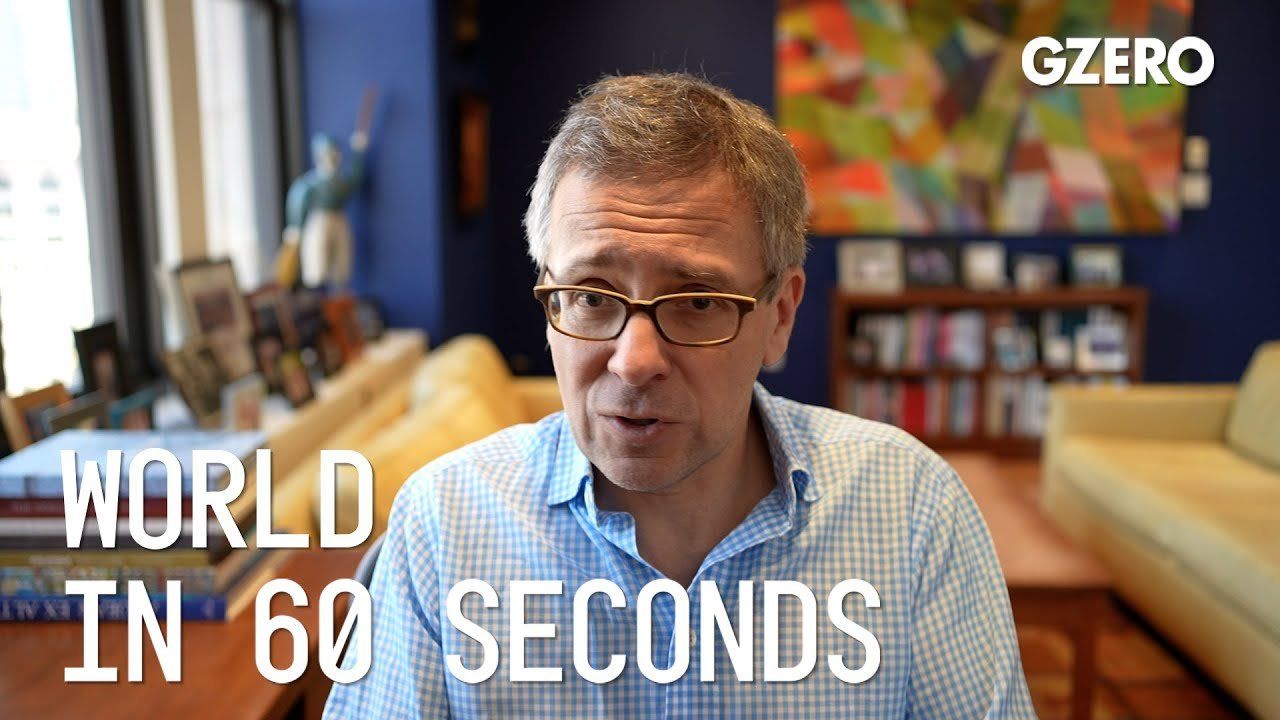Are China's Taiwan war games losing their intimidation power?
No, I wouldn't say that. I would say that the response to a President Tsai meeting with Kevin McCarthy in California where no real news was made as opposed to a trip to Taipei is not as provocative, and so, therefore, China's response is not as provocative, and that was true both militarily, diplomatically, and economically in terms of very limited sanctions. And I think they're hitting the Reagan Library and the Hudson Institute, not a big deal. In other words, not meant to overly escalate, and I think that's good news on both sides, and what's otherwise not a very functional relationship politically right now.
What is the fallout from the Pentagon Intelligence leak?
Well, there's clearly going to be a level of concern on the Ukrainians that they're not as robust militarily, and that there's not as much support for what they can accomplish in their counter offensive as people might think. That's problematic because they'll put more pressure on them to engage diplomatically with the Russians earlier than perhaps they would like, or then Zelensky would be politically prepared to. The thing that I took away from this leak that was most concerning is how close a UK spy plane was to being shot down by the Russians in the Black Sea. Again, we have to understand that this is an environment where Russia is treated as a rogue state run by a war criminal by the United States and by all of NATO. That's a very dangerous place to be. This is a nuclear power with lots of massive military capabilities fighting an active war. And the West isn't in a direct war with them, but they're doing the intel. They're training the troops. They're providing the weapons, and there's lots of ways this could go very, very badly. We need to recognize that we are closer to that kind of a problem than we might otherwise think.
The Good Friday Agreements turned 25 this week. Is Brexit making it harder to achieve peace in Northern Ireland?
Well, I think it was when Brexit was first put into place and because people like Boris Johnson were playing politics around whether or not there would be a hard border between Ireland and Northern Ireland. That has largely been resolved by Rishi Sunak with the EU. And clearly, an enormous amount has been accomplished over the last 25 years. Living in Ireland and Northern Ireland is nothing like it was during the so-called Time of Troubles. And that's a good thing, and I'm glad that we can celebrate that anniversary as opposed to, for example, the anniversary of the war in Iraq, which was devastating for pretty much everyone involved.
- What We’re Watching: Suspected US intel leaks, peace talks for Yemen, Lula talks trade with Xi ›
- 25 years later, is Brexit unraveling Northern Ireland’s delicate peace? ›
- The Graphic Truth: As US arms Taiwan, China arms itself ›
- Viewpoint: As an angry China looms, Taiwan’s president seeks support in the Americas ›
- US intel leak could cause problems in Putin's Russia - GZERO Media ›
- Parsing Donald Trump's indictment - GZERO Media ›
- Russia vs. NATO: Heightened risk of war - GZERO Media ›
More For You
Prime Minister Narendra Modi, with President of the European Council António Luís Santos da Costa, and President of the European Commission Ursula von der Leyen, at Hyderabad House, in New Delhi, India, on Jan. 27, 2026.
On Tuesday, the world’s largest single market and the world’s most populous country cinched a deal that will slash or reduce tariffs on the vast majority of the products they trade.
Most Popular
Five forces that shaped 2025
What’s Good Wednesdays™, January 28, 2026
Canadian Prime Minister Mark Carney has repeatedly tussled with US President Donald Trump, whereas Mexican President Claudia Sheinbaum has tried to placate him. The discrepancy raises questions about the best way to approach the US leader.
10,000: The number of Hamas officers that the militant group reportedly wants to incorporate into the US-backed Palestinian administration for Gaza, in the form of a police force.
Walmart is investing $350 billion in US manufacturing. Over two-thirds of the products Walmart buys are made, grown, or assembled in America, like healthy dried fruit from The Ugly Co. The sustainable fruit is sourced directly from fourth-generation farmers in Farmersville, California, and delivered to your neighborhood Walmart shelves. Discover how Walmart's investment is supporting communities and fueling jobs across the nation.
